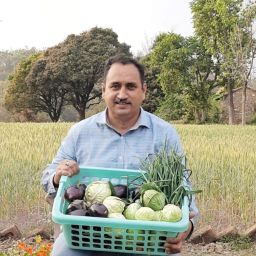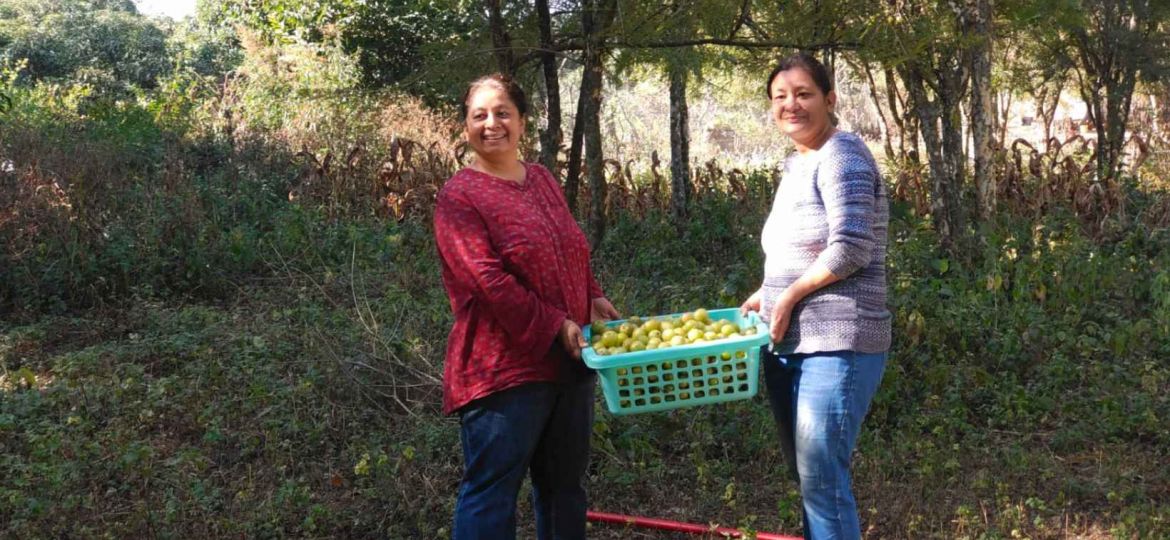
Sisters Took Up Farming in Their 40s; Earn Rs 11 Lakh Growing Gooseberry, Mangoes & More
A chance visit to Manisha Gosain’s land in Dehradun during the COVID-19 pandemic gave her and her sister, Namita Rawat Negi, the idea to convert it into the Doon Gooseberry Farm. They grow vegetables like tomatoes, brinjals, pumpkins, spinach, and more, and sell value-added products made from them.
In 2021, when Namita Rawat Negi and Manisha Gosain, two sisters from Dehradun, Uttarakhand, decided to pursue farming, their decision raised more eyebrows than smiles.
However, driven by their strong self-belief and a desire to protect agricultural land, they ventured into what is widely regarded as one of the toughest occupations — farming.
This journey demands immense perseverance and patience, but their determination has remained unwavering.
In their 40s, many believed that Namita and Manisha would only dabble in farming for a few months before returning to their previous lives and jobs; possibly selling the land. However, they defied expectations and persisted in building their agricultural venture.
Today, they proudly operate Doon Gooseberry Farm, a cozy setup born from their dedication and passion, supported steadfastly by their husbands.
“During the COVID-19 pandemic, we first visited my sister’s land in Dehradun. The scene was not promising. We were faced with 10 bighas of land covered in unruly grass and creepers,” shares Namita.
“However, what immediately caught our attention were the gooseberry trees (amla) laden with fruit, much of which were going to waste. We instantly felt the need to take action, not only to protect our land but also to nurture it and reap the rewards of its bounty,” she adds.
The two sisters entered the world of farming with no prior experience or exposure. However, through trial and error, they have learned to plant and nurture their crops effectively. Here’s their story.
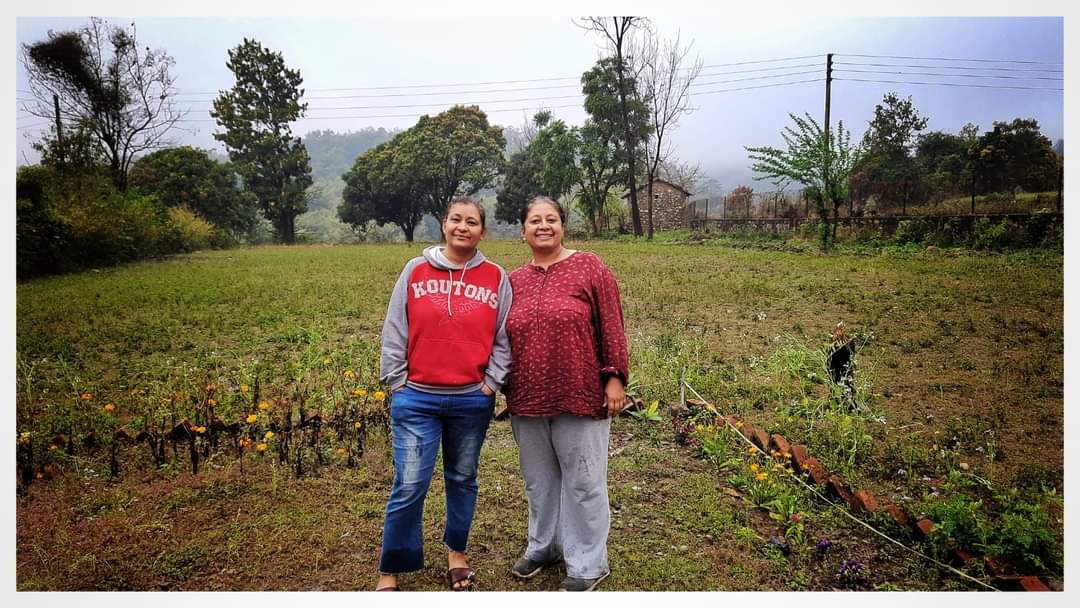
“Harvesting the trees has evolved into a family affair,” Namita shares. “We even invite our friends to join us as it’s a great opportunity to spend the day together and enjoy the fruits of our labour.”
From chutneys and pickles to jams crafted from the fresh produce such as amla, mango, turmeric, garlic and lemon, Doon Gooseberry Farm has expanded its offerings to include a diverse array of products, making a net profit of Rs 5 lakh. Their total income was Rs 11 lakh for the last financial year.
In addition to this, the farm also houses poultry and cultivates various vegetables such as tomatoes, brinjals, pumpkins, spinach, mustard, and lady’s fingers. While they sell products made from amla, mango, turmeric, lemon, and tomatoes, the other vegetables fulfill their household needs, ensuring a self-sufficient and homely environment.
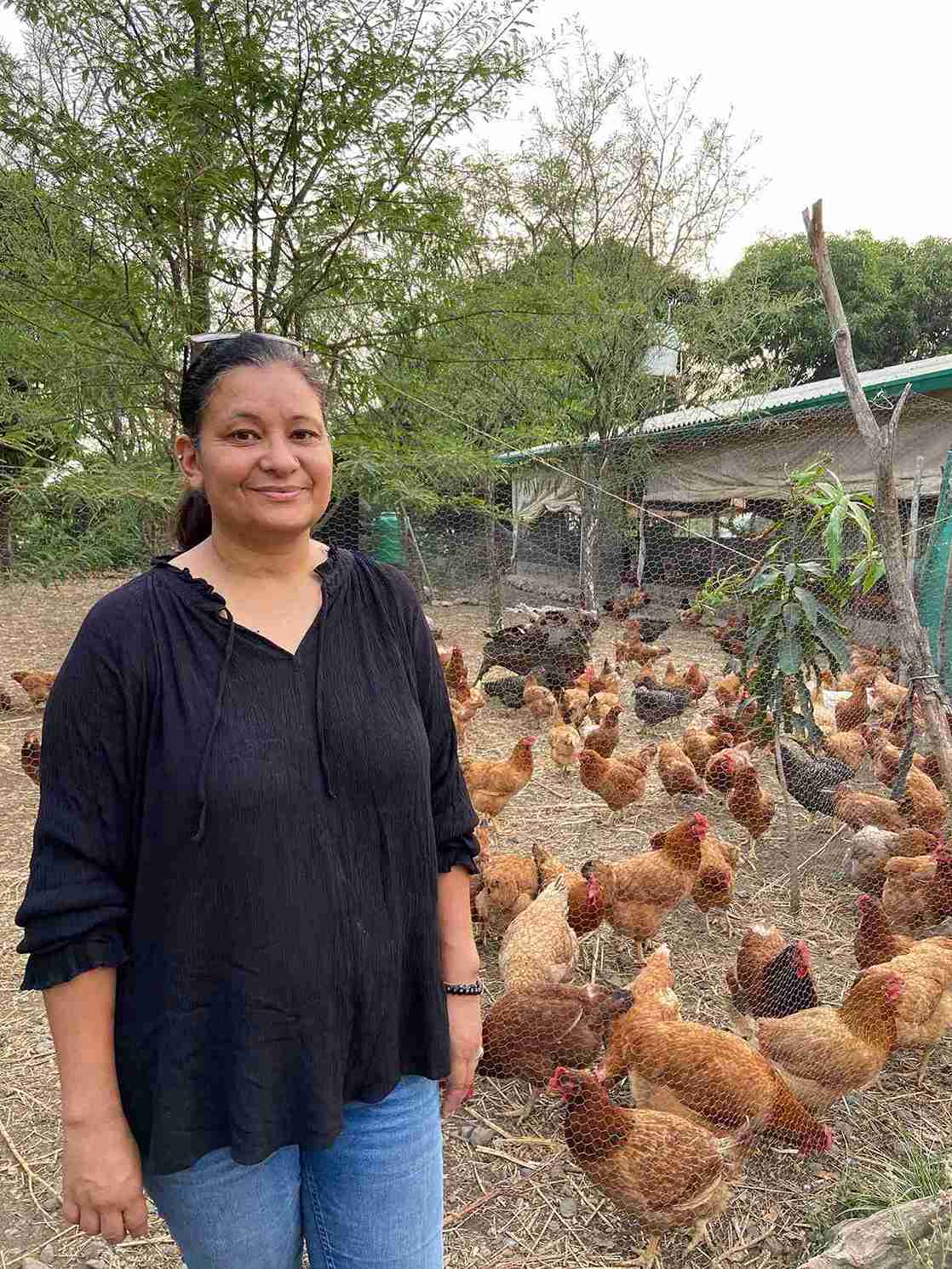
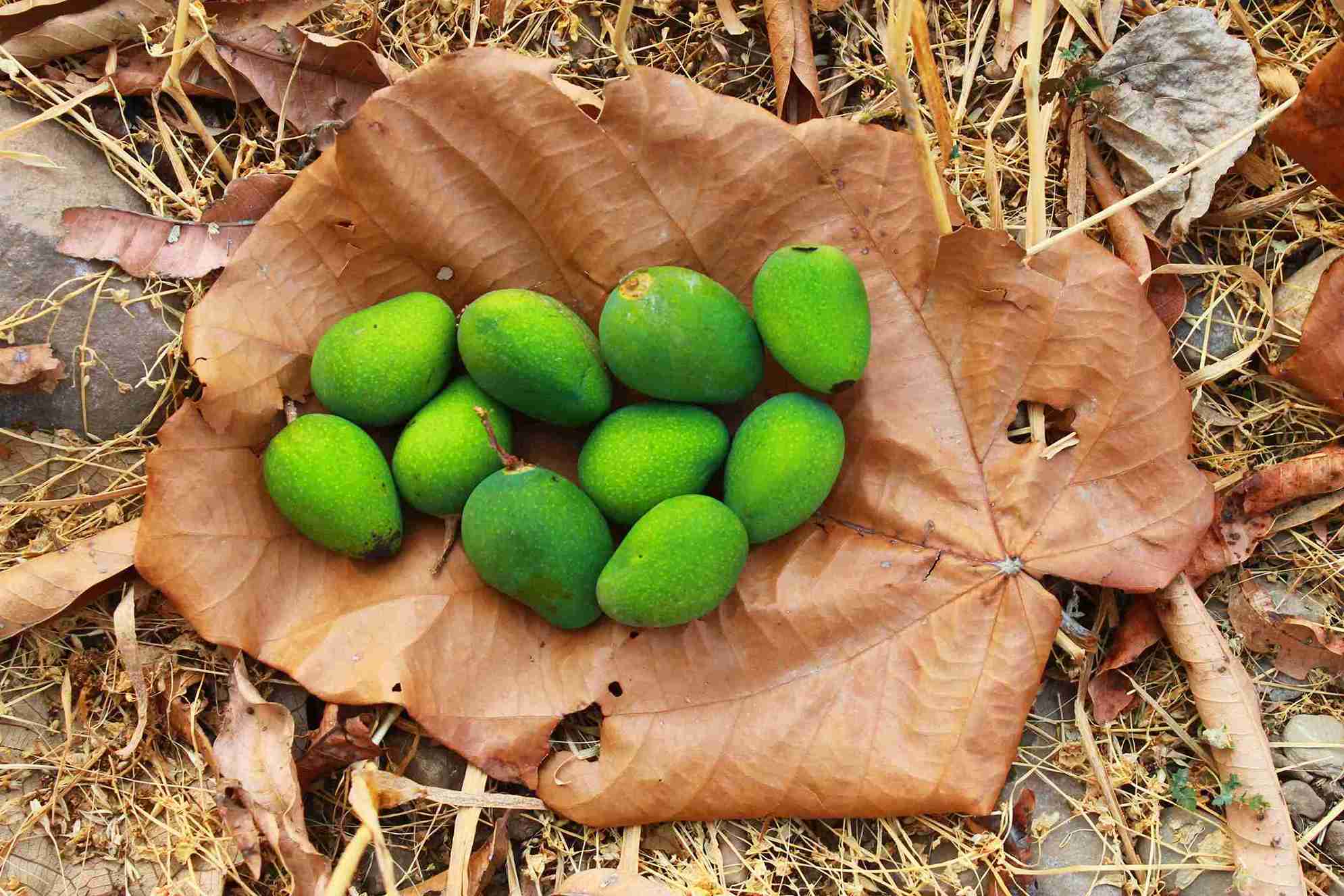
“At Doon Gooseberry Farm, our mission is simple and yet profound: to provide the world with delectable, healthy food options that are free from harmful preservatives. Our journey began with the desire to embrace a lifestyle rich in vitality, where we could savour all these flavours nurtured in our very own backyard,” says Manisha.
She adds, “Our produce flourishes under the sun, untouched by chemical sprays or insecticides. It is here that the roots of Doon Gooseberry Farm run deep, where our dedication to purity and quality is firm.”
They use shells of organic eggs, vegetable peels, and cow manure as the prime source of nourishment for their cultivation.
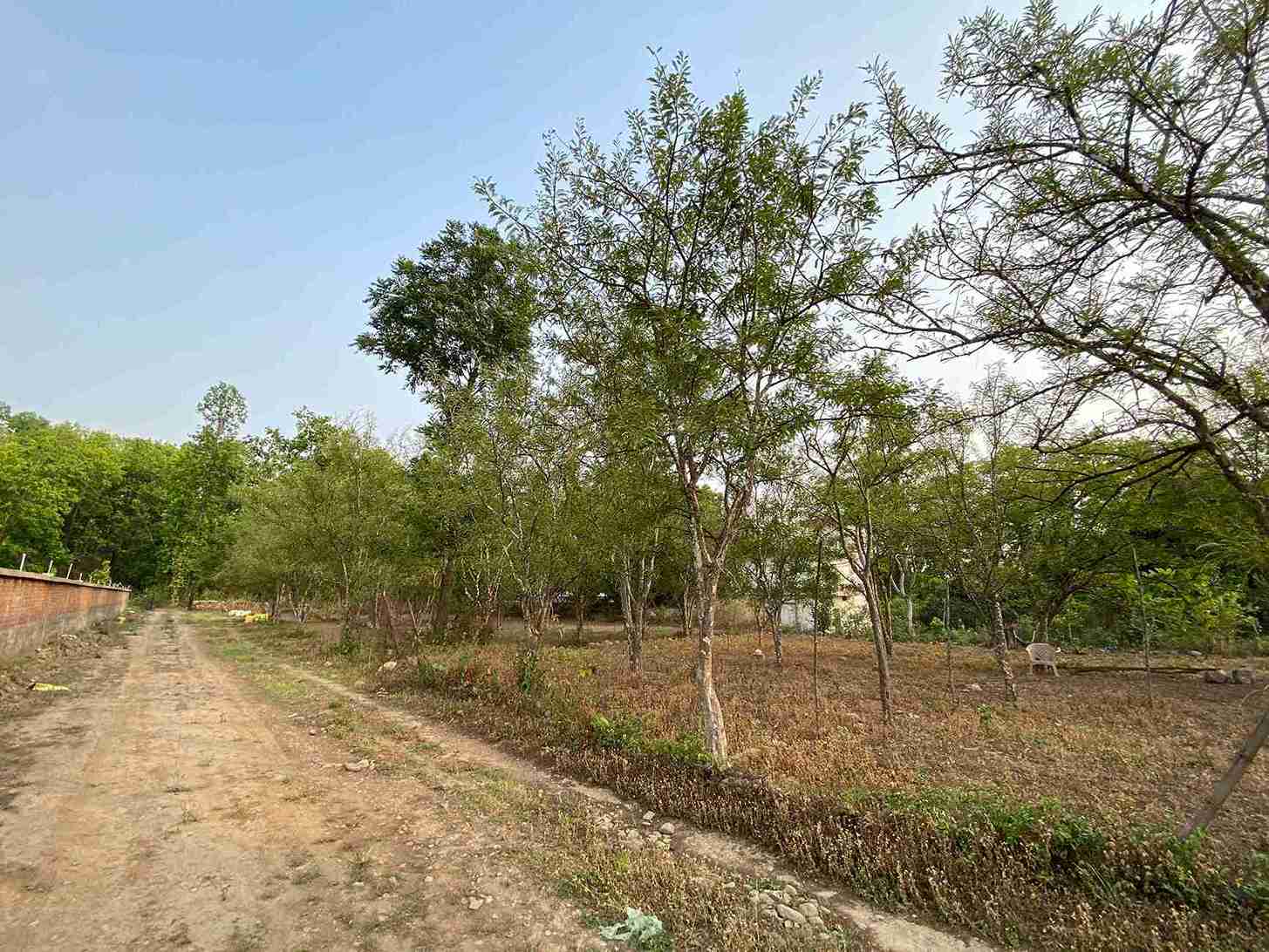
However, the journey has been far from smooth. “Water availability is a critical issue,” Namita explains.
“Being in a hilly area with a non-perennial river nearby, water scarcity is a significant challenge. This is a primary reason why many people around us are abandoning their agricultural lands.”
Despite the government’s efforts to create canals for water supply, Namita notes that there is still a severe shortage, particularly during the summer months. “We are currently exploring rainwater harvesting as a potential solution to create a reliable source of water,” Namita shares.
“However, we sincerely hope that the water situation improves. While the river has some water at certain points, other areas remain completely dry. We believe that if the government addresses this issue earnestly, it will not only benefit us but also many others who wish to pursue farming with greater ease and happiness.”
Currently, Doon Gooseberry Farm collaborates with local women and small processing units to manufacture its products. However, the farm aspires to establish its own processing unit staffed entirely by women in the future.
“We initiated our venture with the assistance of an agricultural loan and help from family,” Namita explains. “This enabled us to make the land cultivable and fulfill our basic requirements. Now, our goal is to expand further, with a focus on providing employment opportunities to locals, particularly women.”
Credits: www.thebetterindia.com
———————————–
This article is originally published in https://thebetterindia.com and has been written by Shweta Bhanot Mehrotra.


